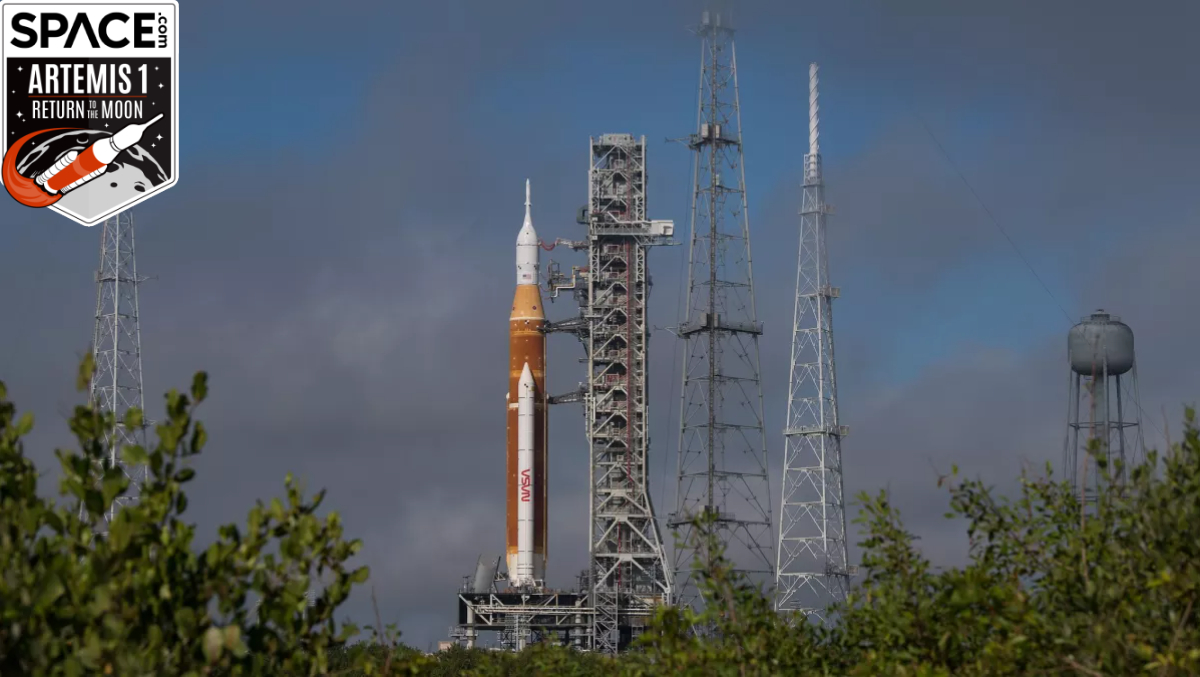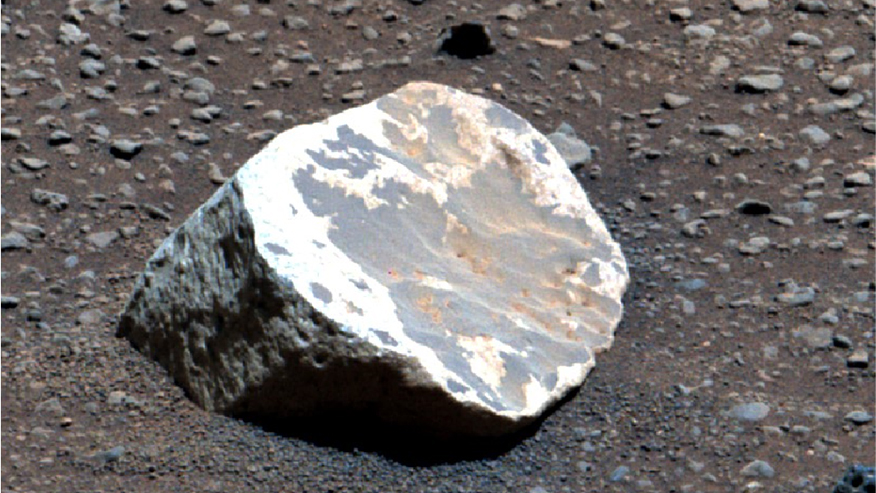NASA prepping for key fueling test of Artemis 1 moon rocket on Wednesday

NASA is gearing up for a crucial fueling test of its Artemis 1 moon rocket on Wednesday (Sept. 21) that could keep the huge vehicle on track for a liftoff less than a week later.
Artemis 1, the first mission in NASA's Artemis moon program, will use a Space Launch System (SLS) megarocket to send an Orion capsule on a long journey to lunar orbit and back. NASA originally aimed to launch Artemis 1 on Aug. 29, but technical issues scuttled the planned liftoff twice.
The second of those glitches was a leak of liquid hydrogen propellant, which the mission team traced to a faulty seal in a "quick disconnect" linking the SLS core stage with a fuel line coming from Artemis 1's mobile launch tower. Technicians replaced two seals at the quick disconnect earlier this month, potentially solving the problem.
Related: NASA's Artemis 1 moon mission: Live updates
More: NASA's Artemis 1 moon mission explained in photos
Wednesday's fueling test will show if that fix worked. The Artemis 1 team plans to pump supercold propellant — liquid hydrogen and liquid oxygen — into the SLS on Launch Pad 39B at NASA's Kennedy Space Center in Florida. The operation is scheduled to begin at 7:15 a.m. EDT (1115 GMT) on Wednesday; it "will conclude when the objectives for the test have been met," NASA officials wrote in an update on Friday (Sept. 16).
You can watch the test live here at Space.com, courtesy of NASA, or directly via the space agency.
NASA will hold a press conference on Monday (Sept. 19) at 11:30 a.m. EDT (1530 GMT) to discuss the fueling test. That briefing will stream live here as well.
Breaking space news, the latest updates on rocket launches, skywatching events and more!
The participants in Monday's discussion are:
- Tom Whitmeyer, deputy associate administrator for Common Exploration Systems Development, NASA headquarters
- Mike Sarafin, Artemis mission manager, NASA headquarters
- Jeremy Parsons, deputy manager, Exploration Ground Systems Program, NASA's Kennedy Space Center
- John Blevins, chief engineer, Space Launch System Program, NASA's Marshall Space Flight Center
If Artemis 1 cannot hit the Sept. 27 launch opportunity, a backup window opens on Oct. 2.
The Artemis 1 stack rolled out to Pad 39B on Aug. 16 from KSC's huge Vehicle Assembly Building (VAB). If Wednesday's fueling test does not go well, SLS and Orion may have to go back to the VAB for more extensive work.
Artemis 1 might also have to roll back to the VAB for another reason. The mission's flight termination system (FTS), which is designed to destroy the rocket if it veers off course during launch, was certified for just a 25-day stretch. That time is already up, and NASA needs a waiver from the U.S. Space Force to let Artemis 1 launch in its present condition. (The Space Force oversees the Eastern Range for rocket launches.)
NASA already received one such waiver, from 20 days to 25 days, and has requested another one. If that second request is denied, the FTS would have to be recertified, which would require a rollback to the VAB.
Mike Wall is the author of "Out There" (Grand Central Publishing, 2018; illustrated by Karl Tate), a book about the search for alien life. Follow him on Twitter @michaeldwall. Follow us on Twitter @Spacedotcom or on Facebook.

Michael Wall is a Senior Space Writer with Space.com and joined the team in 2010. He primarily covers exoplanets, spaceflight and military space, but has been known to dabble in the space art beat. His book about the search for alien life, "Out There," was published on Nov. 13, 2018. Before becoming a science writer, Michael worked as a herpetologist and wildlife biologist. He has a Ph.D. in evolutionary biology from the University of Sydney, Australia, a bachelor's degree from the University of Arizona, and a graduate certificate in science writing from the University of California, Santa Cruz. To find out what his latest project is, you can follow Michael on Twitter.
